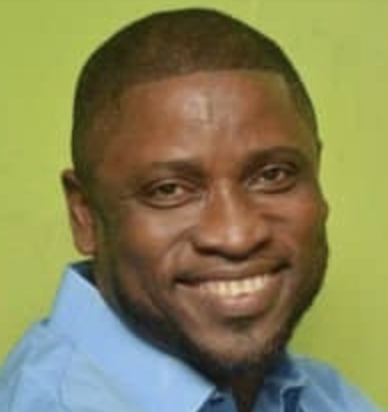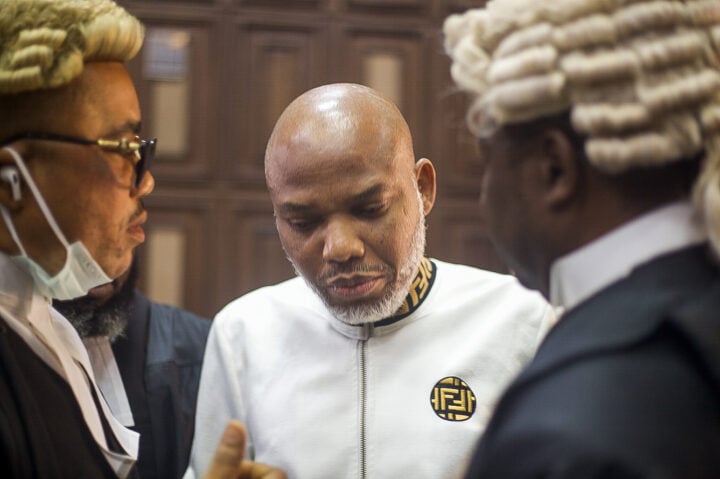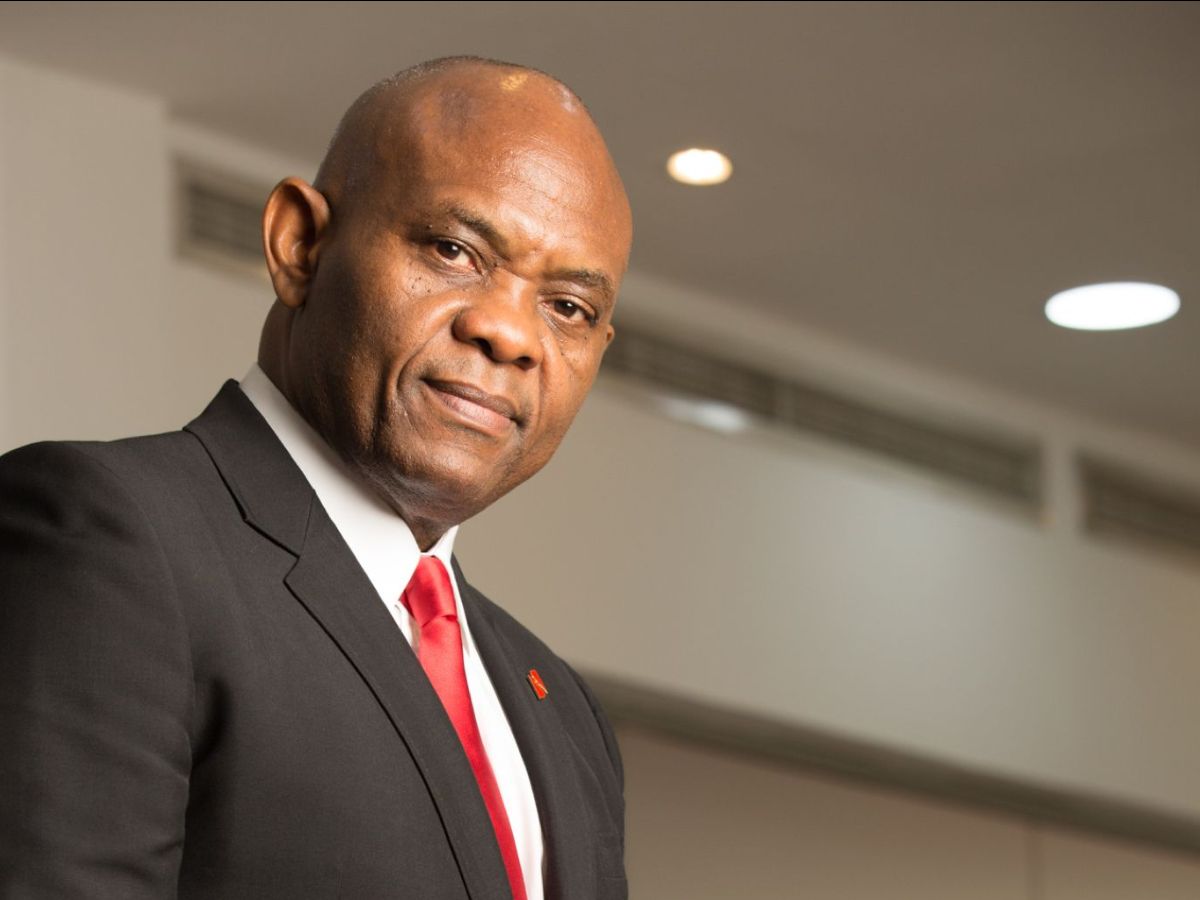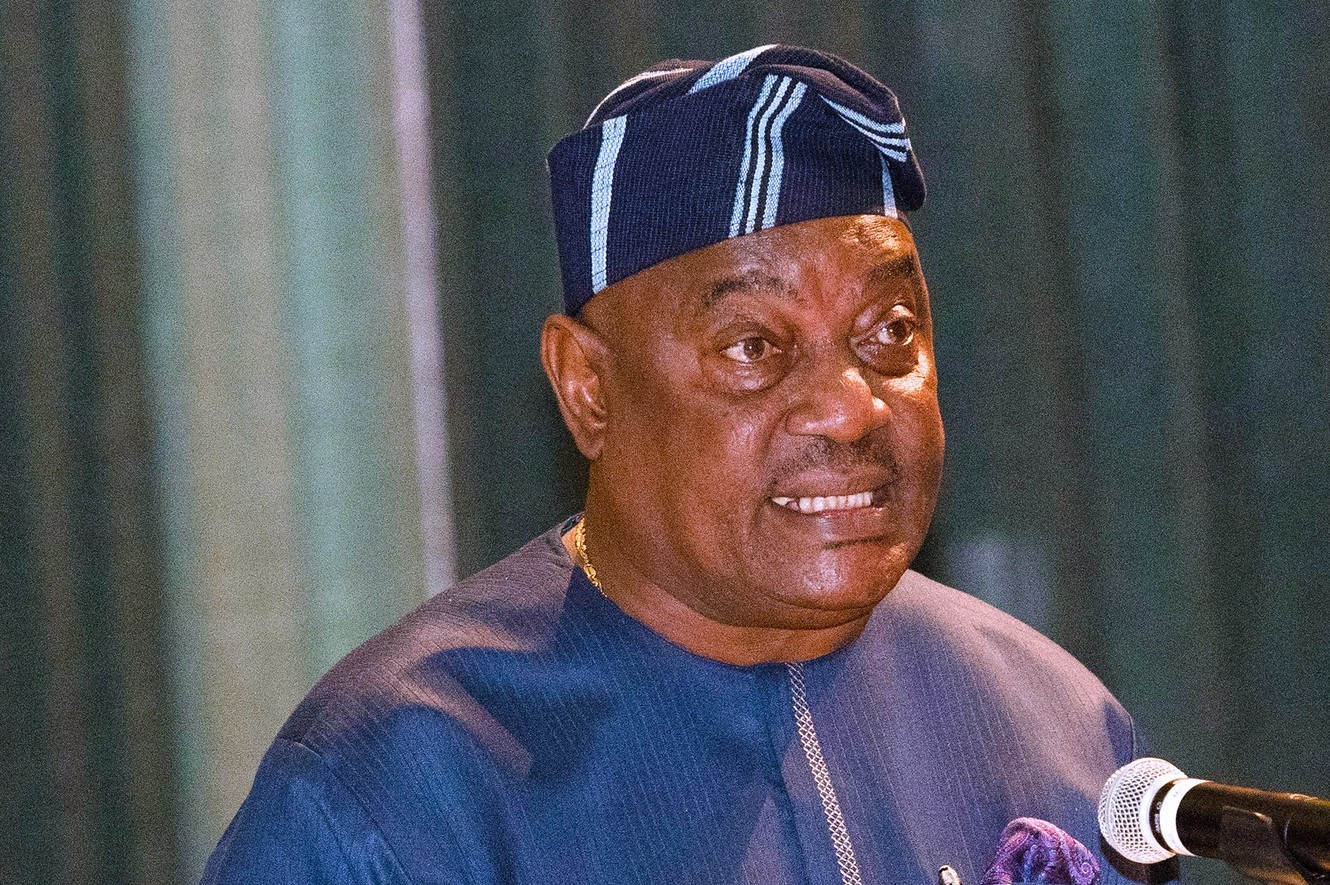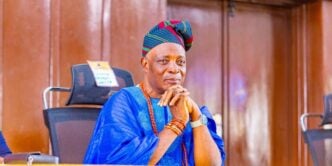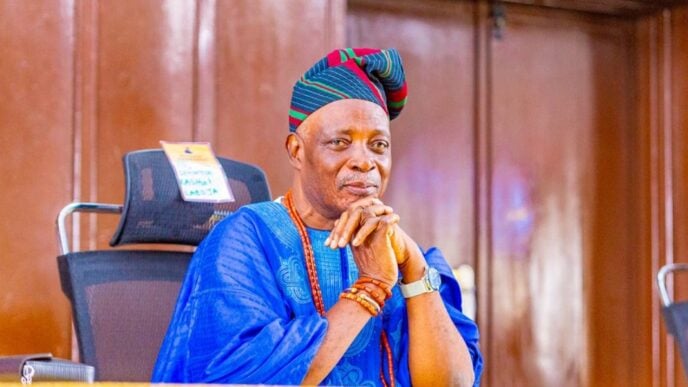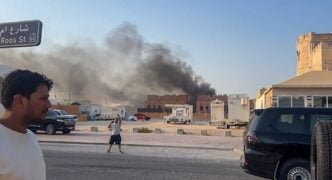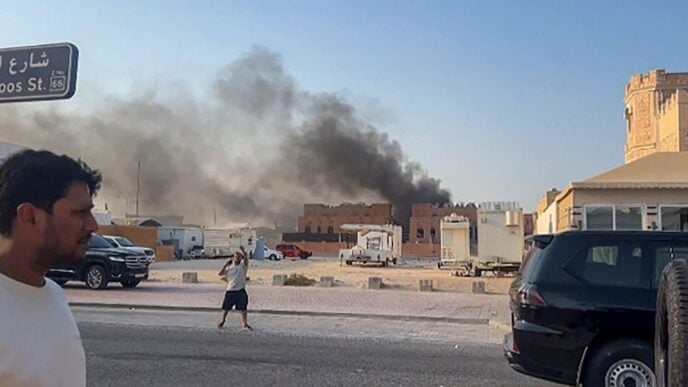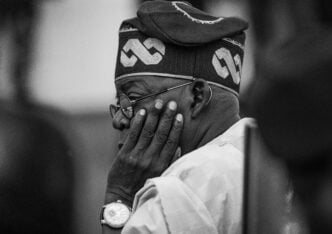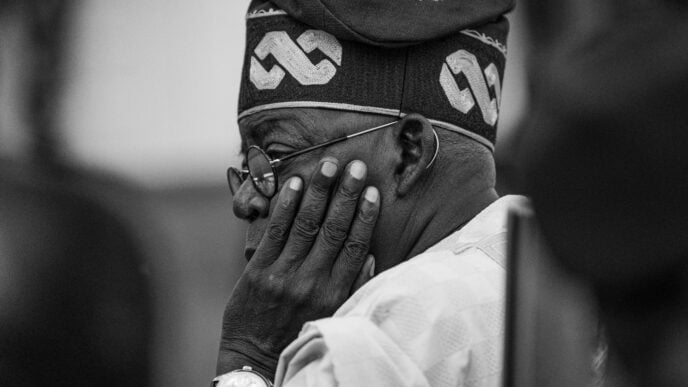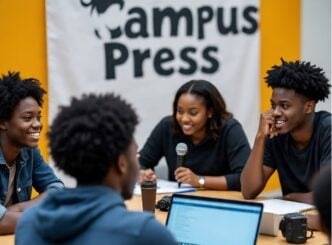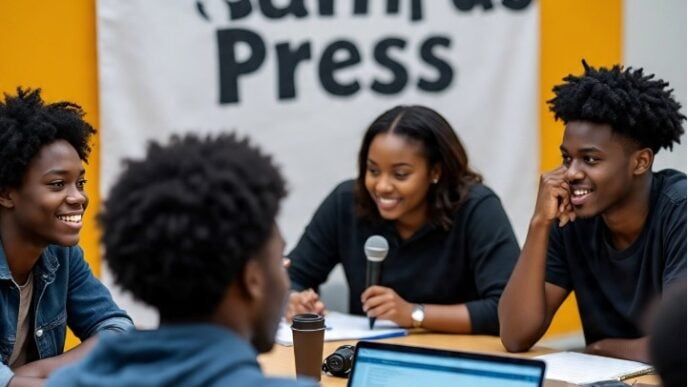Nnamdi Kanu(middle) in court
On October 10, 2025, a significant milestone decision will be reached in the ongoing trial of the leader of the Indigenous Peoples of Biafra (IPOB), Nnamdi Kanu. On that day, the Federal High Court in Abuja will rule on no-case submission by the detained IPOB leader. A decision in favour of the defendant could be a turning point.
But if precedent is anything to go by, October 10 may be just yet another unpredictable court appearance in the life of the IPOB leader who has been behind bars since 2021. Already, the request by Kanu’s defence team to transfer him from the custody Department of State Security (DSS) to National Hospital Abuja met a brick wall as the judge failed to rule on the motion.
As legal interventions have failed so far, the call for the release of Kanu has shifted from the court to the public space. The president-general of Ohanaeze Ndigbo Worldwide, Senator John Azuta-Mbata urged President Tinubu to release Kanu.
The detention and trial of Nnamdi Kanu have become one of the most controversial political issues in Nigeria since he began his Biafra agitation. Since 2021, when he was removed from Kenya, his trial has been more than a judicial issue; it has transformed into a political bargaining chip and a test of the country’s tolerance of succession.
Advertisement
There is the feeling of deja vu every time the Ohanaeze Ndigbo appeals for Kanu’s release. During the late President Buhari’s administration, Igbo leaders, under the aegis of Respected Igbo Greats led by First Republic parliamentarian, Mbazulike Amechi appealed to the late President to release the proscribed IPOB leader. Again during a visit to Ebonyi state in 2022, Ohaneze Indigbo also pressed Buhari to release Kanu. It seemed that all fell on deaf ears. Buhari on both occasions acknowledged the requests by the apex Igbo cultural organisation but never acted on them.
The question now is: why, in spite of several bails, rulings, appeals, and pressure from Ohanaeze Ndigbo, human rights organisations, and his defence team, Kanu has not been set free? On the surface, his trial may appear just legal but scratch much deeper, it is layered with Nigeria’s ethnic division and the struggle to keep a divided and diverse federation together. At the heart of the current debate is whether President Tinubu would yield to calls to release Kanu – a decision that could reshape his relationship with the north and potentially change the trajectory of the tensions in the southeast.
First, it appears the federal government is concerned that the IPOB leader’s release could trigger renewed agitations in the South-East despite assurances from Ohanaeze Ndigbo and political commentators that setting him free will quell violent agitations. For the FG, it seems Kanu is not just a sole defendant; he is symbolic of the cries of marginalisation and ethnic tension that have dominated conversation in the south-east since the end of the Civil War. Setting him free, in the opinion of the military, is to risk strengthening IPOB and its armed wing the Eastern Security Network (ESN). For the federal government keeping Kanu in detention is a safer option for containing sectarian unrest, a risk that outweighs its political cost.
Advertisement
Another reason why Tinubu, like Buhari before him, may not release Kanu is the issue of precedent. Historically, the Nigerian ruling establishment, military or civilian have demonstrated the reluctance to appear weak when dealing with any attempt to balkanise the country. The Nigerian state has historically treated secessionist agitations or any agitations that threaten the sovereignty or resources of the country with a heavy-hand whether it was Isaac Adaka Boro’s Niger Delta uprising in the 1960s or the Ogoni self-determination crisis of the 1990s.
The instinct is always brutal repression, not concession. Kanu’s case continues this trajectory. Succumbing to calls to release Kanu might send the signal that the state can be pressured into concessions, especially when dissident agitation is linked to violence or civil action such as the Monday “sit-at-home” orders that have crippled the South-East. Tinubu, already combating crises on several fronts-economic, insecurity, and political legitimacy-cannot afford to be seen as giving in.
Then there is the politics of power balance. The Igbo political elite have never spoken with one voice in their approach to Kanu’s ordeal. While some southeast leaders like Senator Abaribe have spoken out and consider his detention as provocation, others see Kanu as a divisive force who threatens their own political dominance in the region. For Tinubu, the Igbo elite division reduces the urgency of granting a political solution. Unlike the Niger Delta militancy under Yar’Adua, or even Yoruba Nation under Buhari, the Igbo political class has not presented a unified front to demand for his freedom. This division has enabled the presidency to stall.
Kanu has been detained since 2021. The charges preferred against him have been amended many times and so are the judges that have handled the case changed either through request from Kanu or judges recusing themselves. These legal entanglements have ensured Kanu is kept in the gulag. By keeping Kanu embroiled in a vicious cycle of amended charges, struck-out counts, and reinstated indictments, the FG extends and keeps its leverage. Each adjournment, each new legal decision and ruling from the Supreme Court, buys time. The longer the trial drags, the more the government can claim it is “respecting the judicial process” while ‘dodging’ the political question of release.
Advertisement
The agitations to free Kanu has increased since Tinubu became president. While Buhari is considered a hard-liner who some Igbos believe harbours ‘hatred’ for their region, Tinubu is seen as a level-headed democrat who may be amenable to releasing Kanu. But for those who understand Nigeria’s geo-politics, Tinubu has more reason today to ignore calls to release Kanu. At the height of this is the President’s political survival and strategy. As a president still strengthening his grip on power, especially with second term politics, he is not likely to risk burning political capital on a decision that could alienate the security, intelligence forces and the powerful northern political bloc.
Kanu’s travail with the establishment is not only because of the agitations for Biafra but also from his strategy. His rhetoric was caustic and often volatile. In many broadcasts on Radio Biafra, he targeted the North, its political leaders, and people in rhetoric that stoked tensions. Kanu targeted the late President Buhari, a symbol of northern political hegemony whom he said had died and was replaced by a clone named Jubril of Sudan. The conspiracy gained ground throughout Buhari’s Presidency and even in death.
In labelling the north as both beneficiary of Nigeria’s warped federal structure and the tormentor of the southeast, Kanu projected himself as both a mouthpiece of Igbo Biafra actualisation and a sworn enemy of the northern power bloc. This background is important to understanding why Kanu’s rendition from Kenya, and eventual incarceration, has such a strong northern dimension. For many within the the northern political elite, setting him free would be interpreted as capitulation to secessionist rhetoric and as an insult to the North and its leaders. The northern power bloc, which remains dominant in Nigeria’s power equation, sees Kanu through the prism of history-the bloody Biafran War. In this context, to release Kanu would seem to attach legitimacy to his agitation.
President Tinubu knows that his second term still depends on maintaining northern goodwill. History has also demonstrated that Nigeria’s power game depends on how much the contenders manage political bargains as it is about governing. In fact, much depends on the former. Any decision that provokes resentment of the northern political bloc risks upsetting the delicate compromises that won him the presidency in 2023.
Advertisement
Setting Kanu free could elicit backlash from northern politicians who are already waiting in the wings and latching onto every misstep by the president to deny him a second term. For the President, the Kanu conundrum is best deferred than resolved.
Advertisement
Views expressed by contributors are strictly personal and not of TheCable.
